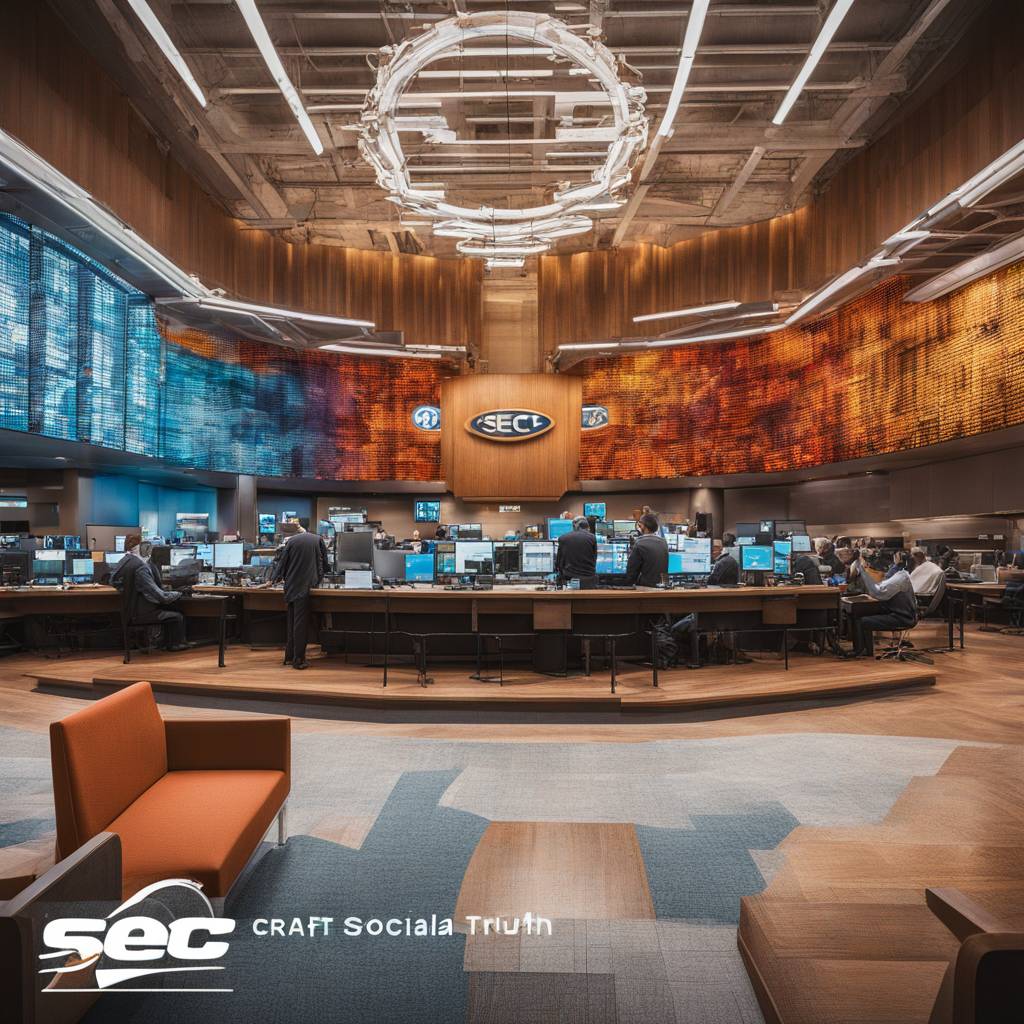The stock price of Trump Media & Technology Group (TMTG), the parent company of Donald Trump’s social media start-up Truth Social, has been experiencing significant volatility in its first week of trading on the NASDAQ. DJT stock surged by as much as 50% but then plummeted by 21% following the disclosure of a $58.2 million net loss against $4.1 million in revenue for 2023. Despite the fluctuations, TMTG maintained a market cap of about $6.2 billion earlier in the week, sparking debate on whether stronger regulations are needed to address market speculation and hype driving prices beyond a company’s fundamental value.
Critics of DJT are advocating for a proposed regulation from the SEC regarding the use of predictive data analytics (PDA) by financial firms. The rule aims to identify and eliminate conflicts of interest associated with PDA technologies like artificial intelligence and machine learning. However, it remains unclear whether this rule would address the volatile swings seen in DJT stock prices, as its provisions mainly involve reporting requirements around how firms use algorithms in trading and providing investment advice, rather than tackling speculation driving meme stock movements.
The SEC’s proposed rule was drafted in response to the GameStop saga of early 2021, which shared similarities with the frenzy around Truth Social’s stock. In both cases, retail investors drove up prices of heavily shorted stocks, leading to unsustainable levels. Despite the questions raised about the role of social media in driving investment decisions, critics argue that the SEC’s rule is not the right response and may burden investment advisers and broker-dealers with additional paperwork and compliance costs without addressing underlying issues.
While the SEC deliberates on its proposed rule, it must ensure that any regulatory action is narrowly tailored to address specific, proven harms in the market. Investors may have different motives for buying DJT stock, such as expressing political support or speculating for short-term gains, and this freedom should be protected as long as investors understand the risks involved. The regulatory response to market volatility must be based on a clear understanding of the problem and a realistic assessment of the rule’s impact to avoid unintended consequences.
The fate of the SEC’s proposed rule remains uncertain, just like the future of Truth Social and its stock price. While the rollercoaster ride of DJT stock may continue to attract attention and debate on the need for stricter regulations in financial markets, it is essential for regulators to ensure that any actions taken are targeted, effective, and do not create more harm than good. The ongoing discussion around social media-induced hype and its impact on market stability is likely to persist, highlighting the need for a nuanced approach to regulating market speculation and volatility.













